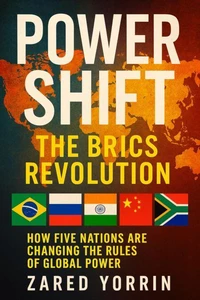History isn't a straight line-it's a map of possibilities. For centuries, we've been told a simple story about human history: that we started as hunter-gatherers, then settled into agriculture, leading inevitably to cities, states, and inequality. But what if that story is wrong? What if our ancestors were far more imaginative and experimental in how they organized themselves than we ever imagined? 'Reimagining Humanity' dismantles this linear narrative, drawing on cutting-edge archaeological and anthropological evidence to reveal a far more nuanced and hopeful account of our past.
It explores how societies throughout history have consciously rejected hierarchy, embraced diverse forms of social organization, and actively experimented with freedom and equality. From the egalitarian societies of early America to the playful political experiments of the Indigenous peoples of Canada, this book unveils a world of possibilities that challenges our assumptions about what is natural or inevitable.
It offers a radical rethinking of human history, inviting us to reconsider the very foundations of our social and political structures and imagine a future where we can build a more just and equitable world.
History isn't a straight line-it's a map of possibilities. For centuries, we've been told a simple story about human history: that we started as hunter-gatherers, then settled into agriculture, leading inevitably to cities, states, and inequality. But what if that story is wrong? What if our ancestors were far more imaginative and experimental in how they organized themselves than we ever imagined? 'Reimagining Humanity' dismantles this linear narrative, drawing on cutting-edge archaeological and anthropological evidence to reveal a far more nuanced and hopeful account of our past.
It explores how societies throughout history have consciously rejected hierarchy, embraced diverse forms of social organization, and actively experimented with freedom and equality. From the egalitarian societies of early America to the playful political experiments of the Indigenous peoples of Canada, this book unveils a world of possibilities that challenges our assumptions about what is natural or inevitable.
It offers a radical rethinking of human history, inviting us to reconsider the very foundations of our social and political structures and imagine a future where we can build a more just and equitable world.

 , qui est-ce ?
, qui est-ce ?